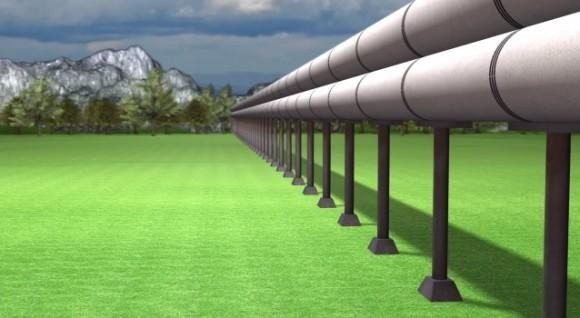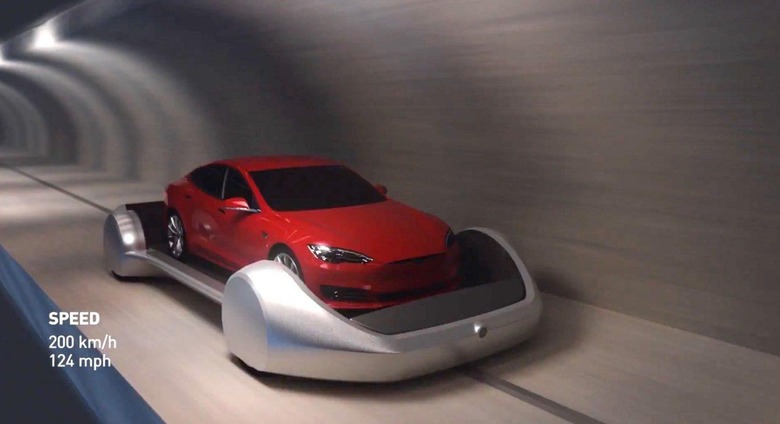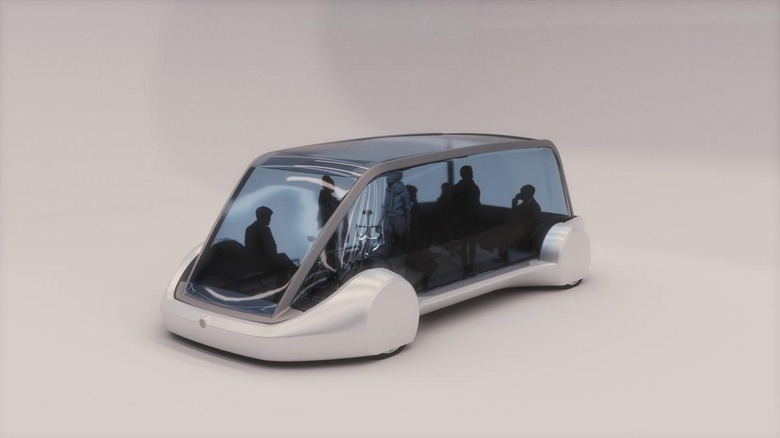Elon Musk's Hyperloop plans are an unsurprising surprise
Elon Musk may not have set out to build a Hyperloop, but it looks like the allure of putting those Boring Company digging machines to work is too much for the ambitious billionaire. Having watched – interested, but maintaining that he was too busy with SpaceX and Tesla to get involved himself – from the sidelines as startups like Hyperloop One tackled with the technical and regulatory issues around putting humans in bullet-like pods and blasting them at high speed through underground tunnels, it now seems he can't resist giving it a go himself.
Musk pushed Hyperloop technology into the headlines back in mid-2013, when the inventor surprised everyone with a white paper on a system for high-speed transportation. Promising the ability to go from New York City to Los Angeles in a mere 45 minutes, Musk's system relied on the idea of pressurized carriages which would travel along lengths of vacuum tube. Much like a pneumatic tube network in an old-time post office, the pods would be hurled through the low-friction environment; Musk envisaged speeds exceeding 700 mph, and Hyperloop networks extending to hundreds of miles of tube.

It was an astonishing concept, but one Musk said he wasn't interested in building himself. More accurately, perhaps, he argued that he simply lacked the time to commercialize Hyperloop technology, given his existing focus on space travel and electric cars. Instead, he opened up the technology to anybody who wanted to make it work practically.
Several companies obliged. Most recently, Hyperloop One demonstrated a public test of its interpretation in Nevada, with its prototype pod hitting 192 mph on a 1,433 foot length of tube. Others, like Hyperloop Transportation Technologies Inc. and Arrivo, are also working on their own systems.
Fast forward to July 2017, though, and Musk seemingly changed his tune. Although he had been discussing the efforts of his new startup, The Boring Company, to dig tunnels underneath cities like LA, until that point he had described those tunnels as being used for individual "electric skates" on which a single car would be locked and moved – with an AI handling all the navigation – to a different point, eventually emerging back onto the street. Suddenly, though, Musk suggested that he'd been given verbal approval to build a Hyperloop of his own.

That, Bloomberg reports, has been welcomed by the Hyperloop startups who took Musk at his word originally, at least publicly. Privately, it's unclear just how concerned they might be, though the technology is far from being ready to actually handle anybody's commute. Musk, who has already started digging, does have an advantage in terms of his fledgling tunnel business and the deep pockets of a billionaire, but that's still far from having a working Hyperloop pod system up and running.
The Boring Company is clearly thinking about it, though. "Fast to dig, low cost tunnels would also make Hyperloop adoption viable and enable rapid transit across densely populated regions, enabling travel from New York to Washington DC in less than 30 minutes," the company says on its website. Rather than digging the wide tunnels typical until now, which require a diameter of around 28 feet for a single lane of traffic, Musk's business sees far more practical narrow tunnels – around 14 feet across – as the solution. Those electric skates onto which a single car could be mounted suddenly gain an enclosure, and you find yourself with a Hyperloop.

"The electric skate can transport automobiles, goods, and/or people," The Boring Company FAQ explains. "And if one adds a vacuum shell, it is now a Hyperloop Pod which can travel at 600+ miles per hour."
In a statement to Bloomberg, The Boring Company said that its goal was "to accelerate the development of this technology as fast as possible." Although SpaceX holds the trademark for the name "Hyperloop," there are no – current – plans to lock down its use. "We encourage and support all companies that wish to build Hyperloops and we don't intend to stop them from using the Hyperloop name as long as they are truthful."
